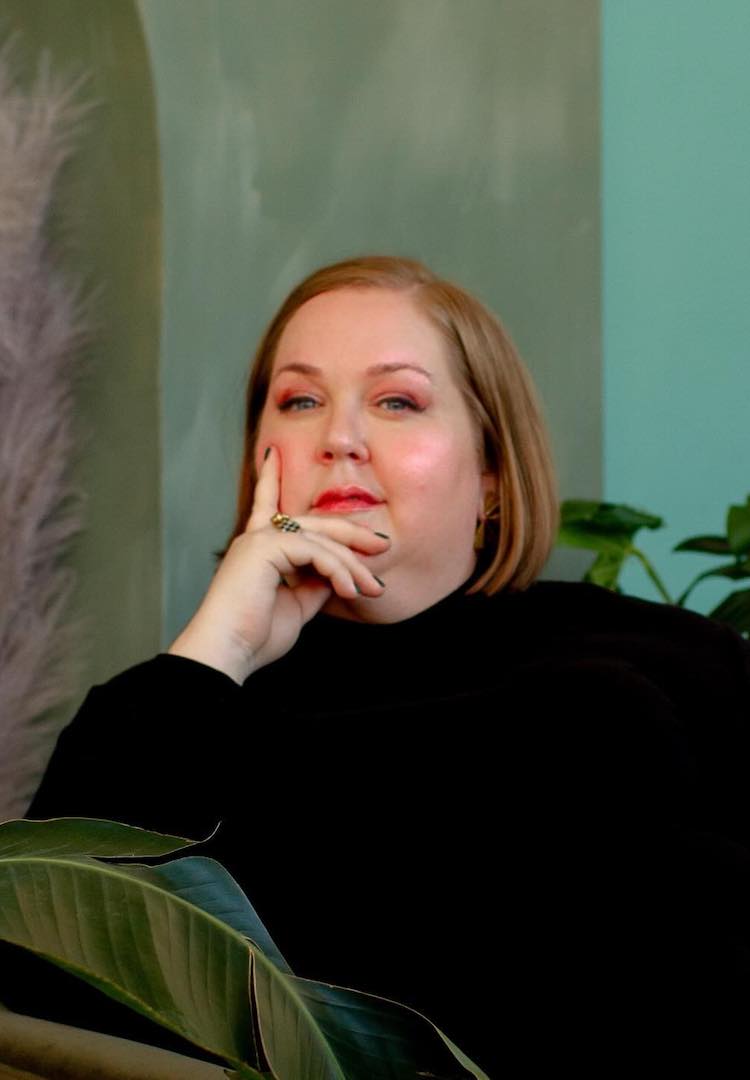Fashion Journal readers share their experiences with weight loss medications
WORDS BY IZZY WIGHT
“It’s not forever for me, but it may be for some and that’s okay.”
Content warning: This article discusses eating disorders, self-harm and weight loss, including weight-specific numbers.
Over the last two years, weight loss drugs have become one of the most talked-about topics on the internet. On social media, celebrity comment sections are dominated by quips like “the Ozempic is Ozempic-ing”. But with the Eating Disorders Alliance’s recent plea to remove compounded weight loss medication from pharmacies across Australia and New Zealand, it’s clear diet drugs are making waves well outside of Hollywood.
For more content like this, tap through to our Life section.
Like any diet or weight-related topic (particularly when pertaining to women), the use of weight loss drugs is controversial. Some argue the negative side effects are downplayed, and the accessibility of medications like Ozempic is highly damaging in more ways than one. For others, weight loss medication has worked wonders for their health. Below, seven Fashion Journal readers share their experiences with weight loss medications.
Lilly*, 22, she/her
I tried Duromine (phentermine), which is an oral tablet, two years ago. I was put on it after being on a 12-week challenge, calorie deficit, training every day and not losing more than two kilos. My doctor classified me as overweight. After a year, consistent with training and eating healthily, plus the tablet, I lost 10kgs!
I’ve been off it for a while and trying to get back onto it, as I’m in the same boat again. My body won’t shift weight and I am considered quite fit; they think it’s genetics or hormones. All in all, for people like me it’s a life-changer.
Astrid*, 20, she/her
I’ve just recently got onto Saxenda injections, which are specifically catered for weight loss. I’ve only been on it for a couple of days so it has not taken effect yet, but my weight has always been up for discussion when it comes to my family and friends. I am on the heavier side compared to everyone else (but I am more mid-size) and I am consistently compared to my very slim sister.
Before starting the gym, I gained over 20kgs after high school, which I believe was a combination of grief, overeating (as a replacement to stop self-harming), being prescribed birth control and switching medications multiple times. I have been working out and eating healthy for over two years and have not seen any weight loss.
I had reached my wits’ end and finally reached out to my doctor about my weight and she prescribed me this injection. Saxenda is more expensive and I have not seen many people talk about it, but I really hope it helps me reach and maintain my goal weight as it has been a huge challenge for me. I have not told anyone about it (I’m worried about people judging) but I know I’m doing what is right for me.
Thelma*, 34, she/her
I have taken Ozempic for a year and it has been the best decision I have made. I struggle with portion control and feeling full and it has taught me what a normal size meal is. It’s not a magic drug, I still have an appetite and have to be mindful of what I eat. I’m learning as I go with a little helping hand.
It’s not forever for me, but it may be for some and that’s okay. I find the medical profession and society generally to be pretty fat-phobic, [with people thinking] being overweight is a choice or a sign of weakness. Some people are wired differently. We don’t criticise people for taking medication for other health issues, so why is there so much stigma for weight loss medication?
I think the pros outweigh the cons. The list of medical conditions that people can develop due to obesity is huge (not to mention the strain it puts on our healthcare system). Weight loss medication is effective when administered correctly and with oversight from a medical practitioner. There are many different reasons why people are overweight.
I think taking weight loss medication should always be paired with medical oversight, dietary support, an exercise plan and where necessary, psychological support to address any underlying issues that may be causing disordered eating.
Jenna*, 28, she/her
I’ve thought about Ozempic, but I’ve never taken it. I saw a friend of mine had some in her room and honestly, jealous thoughts started to come up in my head about her potentially losing weight and looking slimmer. I read a book over Christmas called Conversations on Love and although there were a million quotes that stuck with me, there was one particular one on jealousy and envy.
It said that these two feelings are actually indicators – they point out the things we’re longing for. It also pointed out that nine times out of 10 that person you’re jealous of, or other friends of yours, will always help you work towards your goals. For someone like me who’s a completely average shape and size, this quote from the book made me rethink weight loss on the whole.
There are a million things I’m longing for, and in the scheme of things, being skinnier really isn’t one of them. I want to be stronger, to be healthy, to be content. But not something as surface-level as being one clothing size less.
Navi*, 34, she/her
Yes, I’ve taken Saxenda and Ozempic over the last 12 months. I have major binge eating and intense shame over food and these drugs have turned off the ‘food noise’ in my brain so I can make good choices. I haven’t massively restricted calories. I’m still eating 1,400ish [calories] a day and working out three to four times a week, but it helps turn off the intense desire to regulate my emotions with food.
I have lost weight but the psychological effects have been the most significant for me. I know there is a stigma around using these drugs because people think it’s ‘cheating’ your way to weight loss, but those people have never been tortured by the constant food noise in their brains. I’m still working out and eating carefully and it’s a lot of work, so it feels more like a support than skipping steps to me.
Finley*, 29, she/her
I tried Ozempic after leaving a very toxic workplace. I had gained 15kg in a year. I was getting no sleep and had no work-life balance, I felt completely disassociated from my own body. My dad had started Ozempic through… an online weight loss service and had lost a lot of weight, so I figured I’d give it a go.
When I started it, I first panicked at the idea of having to inject myself into my tummy. I’d never done this before and I had a few failed attempts, resulting in wasting the extremely expensive medication. Almost immediately, I lost my appetite – but not in a nice way. I felt incredibly nauseous all day. The idea of eating made me feel sick so naturally, I started to lose weight but I felt really irritable.
Understandably, when you drastically reduce your calorie intake, your mental health is also going to take a hit. I suffer from premenstrual dysphoric disorder and found I was experiencing the same symptoms while taking the drug. I reached out to their members-only Facebook group to see if others had a similar experience and if things improved. Almost instantly my post was blocked and I was treated by the company like someone who needed to be locked away, they were sending me Lifeline links and telling me I had to stop the medication immediately.
… Once I spoke with a doctor and explained I wasn’t depressed, I was allowed to continue the journey. I did notice a weight loss of about 5kg in four months. However, when I had social events and consumed alcohol (maybe one to three standard drinks), I would suddenly projectile vomit. It was embarrassing and I later found out your body doesn’t process the sugars in alcohol the same way when using the drug.
… I think [weight loss drugs] are too readily available and there’s a lot of misinformation out there. I think weight loss is important for some people and their health, but I have also seen friends who have misused the drug and have a history of body dysmorphia and eating disorders. I now focus on exercise and healthy eating, it’s not a quick fix but I feel better knowing I’ll hopefully have a long healthy life ahead of me.
May*, she/her
I was prescribed Ozempic last year to deal with the weight gain caused by my chronic illness and its treatment. It was a shockingly simple process and was enthusiastically recommended by my doctor. The experience of injecting yourself in your home bathroom was extremely dystopian – and while the side effects were unnoticeable, the cost and shortage meant it wasn’t something for me.
It’s odd to read think pieces about the dangers of Ozempic and the side effects, like depression. The lack of nuance in these conversations has revealed to me how little people know about fatness.
Suddenly, the emotional well-being of fat people is important – depression wasn’t a side effect of concern when fat people experience abuse/violence regularly, and it wasn’t up for discussion when study after study proves discrimination at work or in medicine. But now, when it may provide the opportunity to patronise fat people, it’s suddenly worthy of concern.
Ozempic didn’t come about in a vacuum – it’s just one part of a very expansive, harmful industry. Practically every frontier of body culture has a more insidious underbelly. Gym bros fry their nervous system and consume nutrient-lacking diets – that’s also a very harmful act as well but it hasn’t received the same reaction.
Ultimately, fat people are well aware of the risks and yet we live in a culture whereby the side effects of this drug seem inconsequential in comparison to the side effects of living life as a fat person any longer.
*Names have been changed.
If you’re struggling with body image issues or an eating disorder, you can call the Butterfly National Helpline at 1800 33 4673 for free and confidential support, or email or chat with them online here.













